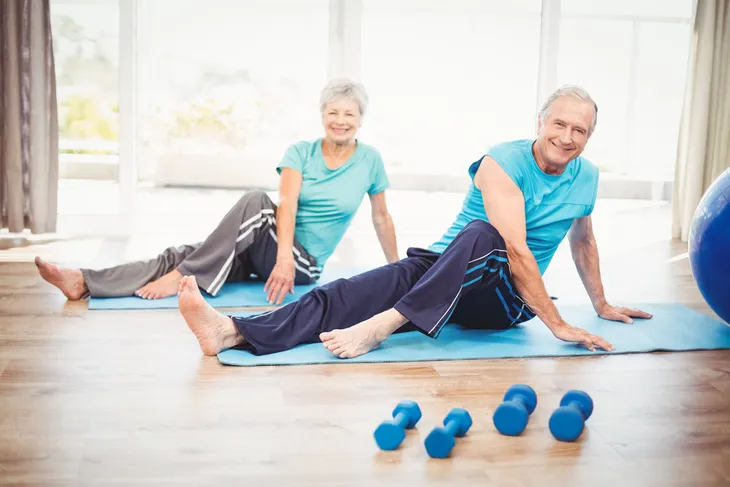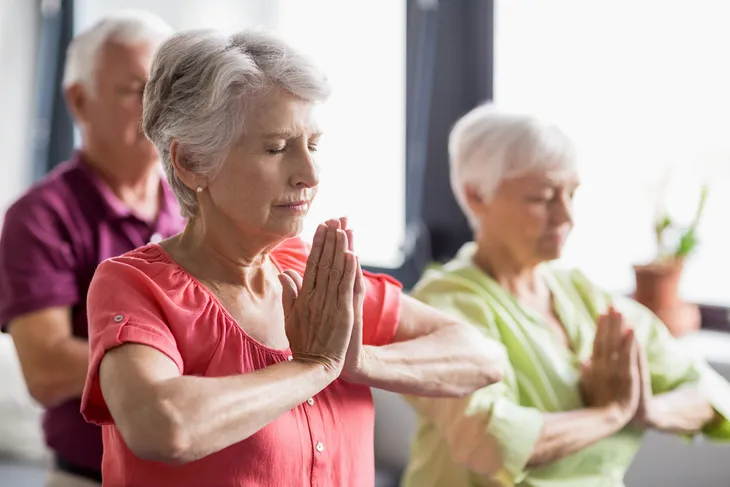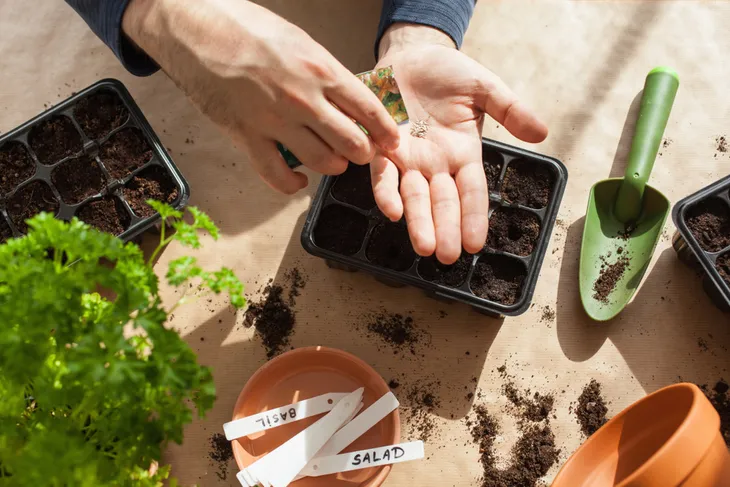People tend to get a little less active in the winter – after all, it’s cold out there in some places in the country – and it’s a trend that appears to be getting worse. This lack of activity (combined with a potentially unhealthy diet) can have a negative effect on one’s health. When it comes to seniors, not moving around much for long periods of time can negatively impact balance, coordination, and even lower mood and increase risk of stroke.
Seniors don’t have to prepare to run a winter marathon, but there are a lot of things they can do outside (and inside) that will keep their mind and bodies in optimal shape. Here are 12 activities for seniors that are relatively low impact, but are also fun and motivating until the warmer weather returns.
Swimming
Winter can go swimmingly if you decide to jump into a pool (an indoor one, of course.) Find a local recreation facility where you can buy a membership, and plan to go regularly. Or if you’re traveling, take advantage of any indoor pools at your hotel.
Swimming is relatively easy on the joints compared to jogging, for example. You can move around freely and use the resistance of the water for an efficient workout. It may have special benefits for the more experienced population: a study actually shows that men over 70 who swim regularly are about one third less likely to fall than their counterparts who shy away from the pool.
Walking
If you’re feeling stuck inside, it’s time to go walking in a winter wonderland. Not only is winter one of the prettiest seasons – which can be especially great if you have a camera hanging around your neck – but it also requires minimal equipment aside from some properly-fitting shoes (with comfortable insoles) and a good jacket, hat, scarf and boots.
If you’re not into the frigid temperatures, then you can take a walk inside. Some shopping malls allow walking before the stores open, giving you a crowd-free zone to get your blood pumping with a friend. You could also find a community center with a walking track, or a treadmill at a gym (but the latter will likely cost you money).
Indoor Fitness Training
Since we mentioned treadmills, we’ll build on other types of exercise you can do indoors (in your own space) to stay fit while waiting for the thermometer to rise. One simple solution is stair climbing (without overdoing it), or perhaps doing some simple squats or stretches during commercials or chapter breaks. Using lighter weights that you can handle while maintaining proper form is beneficial in maintaining muscle tone and flexibility, notes the Daily Herald.
If you’re looking for a bit more direction in your indoor training, then why not turn to a fitness video? Pop in a DVD (here are a few suggestions from LiveStrong) or find a fitness video online from a reputable source that’s specifically designed for seniors. Increase your level of motivation by inviting some friends to follow the workout routines with you.
Chair Yoga
Yoga has been shown to be an effective way to strengthen your body and mind. But for seniors, there can be additional benefits, according to NBC News – specifically, a study shows that yoga can boost cognitive (and emotional) functioning in subjects over 55 years old, notes the source.
However, some yoga poses might be beyond your comfort level, and actually be more painful than therapeutic. This is where chair yoga comes into the picture: you can still get a good stretch and many of the benefits of traditional yoga while having a stabilizing element. VeryWell Fit presents some of the most effective chair yoga poses you can try in your home during the winter (and year-round).
Baking and Cooking
There’s nothing quite like biting into a delicious brownie or cupcake – with the added bonus of the satisfaction from making them. Winter is a perfect time to hone some of those baking skills, while trying out some new recipes that you haven’t had time for during the summer.
Of course, baking is not only beneficial for you – it’s something you can share with family and friends. You could even bring your creations to bake sales to help raise money for a cause, or you can organize a bake sale from scratch. Either way, sharing is the name of the game.
Crafting
Not all of the activities have to be purely physical. Diving into your hobby of crafting can be just the thing you need to break out of your winter rut, and the arts have been shown to help seniors keep a sharper mind. Today’s Geriatric Mind notes that making art/crafts and thinking creatively can strengthen cognitive functions by building new neural pathways.
Go to your local arts supply store and pick up a bunch of supplies that you can use to make pretty much anything you can imagine, whether it’s a wreath for your front door or coasters made from mason jar lids (here is a bunch more ideas courtesy of FeltMagnet.com.) Round up some friends to do the crafting with you, so you can bounce ideas off each other and just be social, which may become more important as you age.
Joining a Book Club
Reading takes you to another world, and it can also teach you new things – whether you’re 20 or 80. Reading in itself is healthy – Real Simple notes there are a wide variety of benefits to taking in a novel or a non-fiction book ranging from boosting your brainpower (and even warding off dementia) to becoming more empathetic.
Joining a club gives you another reason to read, as you can share what you’ve read with others and the insight you’ve gained from it. You can also compare your thoughts with others who have read the same book to see if you have the same perspective or a new one you hadn’t considered. And of course, as mentioned before, the social aspect won’t hurt either.
Indoor Gardening
Gardening is one of the favorite pastimes of seniors (and others of all ages), and it actually counts as moderate exercise – building endurance, strength, and flexibility, notes WebMD. But while it’s typically done outdoors during spring and summer, you can bring your green thumb indoors during the winter.
Nurturing indoor plants and watching them grow takes dedication, but it can be effective in reducing stress and even help ward off dementia, according to Aging.com. Some plants that could thrive indoors during the winter with some TLC include aloe vera, succulents, spider plants, and peace lilies, but there are others as well.
Family Research
Your kids or grandchildren might ask you questions from time to time about past or distant relatives, and you might be able to offer some level of insight. But how much do you really know about your grandmother’s half-brother on your father’s side? There could be a lot of amazing stories and connections you don’t even know that much about yourself.
In the name of preserving family lineage, and as a way to use your research skills and satisfy your own curiosity, you could spend time researching your family’s genealogy. There are a number of free ways to dive into this kind of information, such as finding records at your public library or accessing national archives, notes MoneyTalksNews.com. You will likely end up having a lot more answers for relatives that have questions, and you can create a more complete family tree that won’t be lost to history.
Volunteering
Why not give some of your free time to benefit others? Volunteering is something you can do any time of year, but might be the perfect excuse to get out of the house and around other people (or animals) during the colder winter months. Volunteering might have a range of health benefits from lower blood pressure to reduced stress, according to Harvard Medical School.
CheatSheet.com has a handy list of volunteer opportunities for retirees that include being a companion to other seniors for social benefits as well as assistance with shopping and other chores. Or you can dedicate some time to helping young people improve their literacy skills. If people and parks aren’t your thing, see if your local animal shelter needs a volunteer hand.
Mastering a Musical Instrument
Perhaps you picked up the guitar a few times in your younger days, and it’s still sitting in the corner in the basement collecting dust. Why not revisit your love of playing music by putting a new set of strings on it and learning how to play some popular songs (or even some you wrote years ago?)
You could buy books or look online for instruction, or sign up for local lessons whether it’s guitar, piano, drums or violin. Learning how to play an instrument will help stimulate your brain while building coordination, as well as helping those creative juices get flowing again. And who knows? You may become a star at family gatherings or on camping excursions.
Getting Out Of Town
If the local weather really has you down, maybe what you need is a temporary change of scenery. Pick a place you’ve always wanted to go, make sure you have all the necessary paperwork (and immunizations if required), and board a plane for some adventure.
It’s good if you build an itinerary ahead of time to see the hotspots while you’re there, which will maximize your time and cut down on the amount of energy required to tour the area in search of gems. Oh, and it probably goes without saying that you’ll want to choose a country that’s warmer than your own during the winter – think Spain, Greece, Portugal, or somewhere even further like Thailand.















